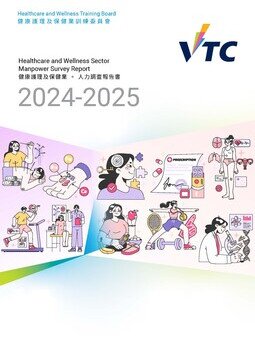Business Outlook
Considering 430,000 units of housing supply will be built for 2022-2032, trade events and exhibitions will continue to grow, six major transport infrastructure projects will be constructed, and three runways will be fully operational by 2024, there will be a high demand for security services.
As of 30 June 2022, 61.8% of valid Security Personnel Permit holders were within the age range of 51 to 80 years old. In contrast, only 38.2% of them were under 50 years old. The number of elderly people is expected to nearly double in 20 years. An ageing workforce will continue to be a major challenge for the security services industry.
With the 5.7% vacancy rate of the industry and 62.4% of employers who recruited within the past 12 months encountering difficulties due to a shortage of labour, it has been a long-term shortage of manpower and recruitment difficulties in the security services industry.
Technologies like intrusion alarm systems, CCTV systems, access control systems, smart devices and security robots have been widely used in the SSI to prevent unauthorized access.
The government has adopted the principles of "best value for money" and "open and fair competition" instead of the "lowest bid wins" principle to evaluate tenders. The private sector has followed this practice when evaluating tenders for security services, which helps increase the competitiveness of the industry and enhances the quality of security services.
In recent years, many security guards prefer to work part-time due to higher hourly rates and instant cash income. This practice not only helps security companies fulfill their manpower needs, but also allows more flexibility for security companies to deploy security guards to support standalone events.




































